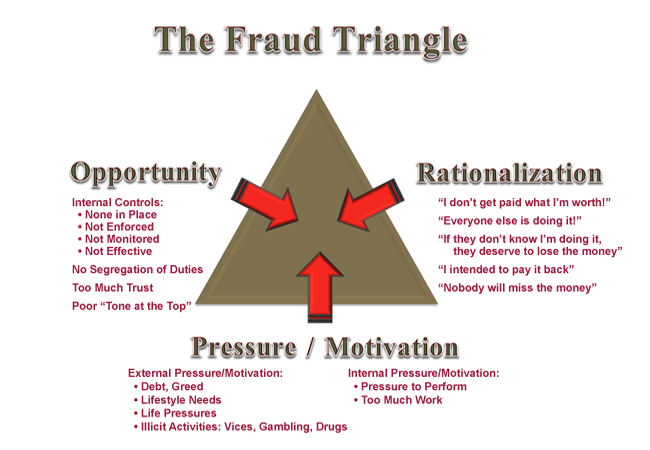What are the Three Elements of Gambling?
The three elements of gambling are consideration, chance, and prize. These elements define the core structure of any gambling

The three elements of gambling are consideration, chance, and prize. These elements define the core structure of any gambling activity.
Gambling involves risking something of value on an uncertain outcome. It has been a part of human culture for centuries. People are drawn to gambling for the thrill and potential rewards. Consideration refers to the money or value put at risk.
Chance involves the randomness and unpredictability of the outcome. The prize is the reward that players hope to win. Understanding these elements helps in recognizing various forms of gambling. Casinos, lotteries, and sports betting all revolve around these principles. Awareness of these elements is crucial for responsible gambling practices. Recognizing the structure can help manage risks and expectations.
Gambling, In A short!
Gambling is a fascinating activity. It involves risking money for potential rewards. People across the world enjoy it. Gambling has three essential elements: chance, consideration, and prize. These elements make gambling exciting and unpredictable. Understanding these can help you grasp the essence of gambling.
History And Evolution
Gambling has ancient roots. Early humans used dice made from bones. In ancient China, people bet on animal fights. The Romans enjoyed chariot races and gladiator fights. Gambling evolved with time and spread across continents. The 17th century saw the rise of casinos in Italy. Lotteries began in Europe and America during the 18th century.
Modern Forms Of Gambling
Today, gambling has many forms. Casinos offer games like poker, blackjack, and roulette. Online gambling has become popular, allowing people to bet from home. Sports betting is another popular form. People bet on football, basketball, and horse racing. Lotteries and scratch cards offer quick thrills. Slot machines attract millions in casinos and online.

Element One: Consideration
Gambling involves three key elements: consideration, chance, and prize. This section focuses on the first element: consideration. Understanding consideration is crucial for grasping the basics of gambling.
Definition And Importance
Consideration means something of value that a player must pay to participate. This can be money, time, or effort. It is the initial investment required to enter a game of chance. Without consideration, a game cannot be classified as gambling.
Consideration is important because it defines the stakes. It also ensures that the game has financial and psychological weight. The value placed on consideration affects the player’s commitment and excitement. This element creates the foundation for risk and reward.
Examples In Various Games
Consideration varies across different gambling games. Here are a few examples:
| Game | Consideration |
|---|---|
| Poker | Entry fee or buy-in |
| Lottery | Cost of the ticket |
| Slot Machines | Coins or tokens |
| Sports Betting | Wager amount |
In poker, the buy-in is the consideration. This is the amount each player pays to join the game. For the lottery, the consideration is the cost of the ticket. This is the price players pay for a chance to win a jackpot.
With slot machines, coins or tokens are the consideration. Players insert these to spin the reels. In sports betting, the wager amount is the consideration. Bettors place their money on a specific outcome in a sporting event.
Element Two: Risk
When discussing gambling, risk plays a crucial role. Risk is the uncertainty of outcomes and the potential loss involved. Understanding and managing risk can make a significant difference in your gambling experience.
Understanding Risk
Risk in gambling is the chance of losing your wager. Every bet you place has a risk factor. The higher the potential reward, the higher the risk usually is. Understanding this balance is key to becoming a savvy gambler.
Consider the following table to understand different types of gambling risk:
| Type of Gambling | Risk Level |
|---|---|
| Slot Machines | High |
| Sports Betting | Medium |
| Poker | Low to Medium |
Managing Risk In Gambling
Managing risk involves careful planning and self-control. Here are some tips to manage risk effectively:
- Set a Budget: Decide how much money you can afford to lose.
- Stick to Your Limits: Never go over your set budget.
- Understand the Odds: Learn the odds of the games you play.
- Take Breaks: Regular breaks can help you think clearly.
Implementing these strategies can help in reducing your risk. A disciplined approach to gambling can enhance your overall experience and minimize potential losses.
Element Three: Prize
The third essential element of gambling is the Prize. The prize is the reward a player can win. It is a key motivator for gamblers. Understanding the types of prizes and their impact is crucial.
Types Of Prizes
Prizes in gambling vary widely. They can be cash, goods, or experiences. Here are some common types:
- Cash Prizes: The most common type. Players win money.
- Goods: Items like cars, electronics, or vacations.
- Experiences: Trips, event tickets, or special events.
Each type of prize attracts different types of gamblers. Some prefer tangible rewards. Others seek unique experiences.
Impact On Gambling Behavior
The prize has a big impact on gambling behavior. Bigger prizes attract more players. They increase the excitement and risk. Different prizes can influence different types of players. For example:
| Prize Type | Impact |
|---|---|
| Cash Prizes | Attracts serious gamblers. They aim for monetary gain. |
| Goods | Appeals to casual players. They enjoy winning items. |
| Experiences | Attracts adventure seekers. They value unique experiences. |
The type of prize can change the way people gamble. It can affect their strategies and decisions.
Legal And Ethical Aspects
The legal and ethical aspects of gambling are crucial. They ensure fairness and protect players. Understanding these aspects helps you navigate the gambling world safely.
Regulations And Laws
Every country has its own gambling laws. These laws regulate how gambling operates. They ensure the safety and fairness of games. Violating these laws can lead to severe penalties.
In the United States, gambling laws vary by state. Some states have strict regulations. Others have more lenient rules. For example:
| State | Legal Status |
|---|---|
| Nevada | Legal |
| Utah | Illegal |
In Europe, many countries regulate online gambling. The United Kingdom has strict laws. They require gambling sites to have a license. This ensures the site is safe and fair.
Ethical Considerations
Gambling raises several ethical questions. Is it fair? Is it safe? These questions matter to players and regulators.
One ethical issue is problem gambling. Some people can’t control their gambling. This can lead to financial and personal problems. Responsible gambling measures aim to help these people.
Another ethical concern is the fairness of games. Games must be fair to all players. This ensures everyone has an equal chance to win.
Many organizations promote responsible gambling. They offer help to problem gamblers. They also educate the public about the risks of gambling. These efforts create a safer gambling environment.

Frequently Asked Questions
What Are The Three Elements Of Gambling?
The three elements of gambling are consideration, chance, and prize.
How Does Consideration Work In Gambling?
Consideration refers to the money or value wagered by the participant.
Why Is Chance Crucial In Gambling?
Chance determines the outcome, making the game unpredictable and exciting.
What Is The Role Of The Prize In Gambling?
The prize is the reward, which can be money or other valuable items.
Conclusion
Understanding the three elements of gambling helps you make informed decisions. Skill, risk, and reward are crucial. Recognize these components to enhance your gambling experience. Always gamble responsibly. Knowledge empowers you to enjoy gambling safely. Remember, it’s about fun and entertainment.
Stay informed and gamble wisely.















